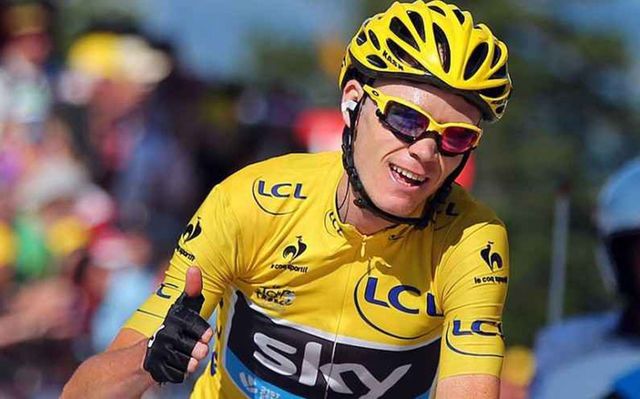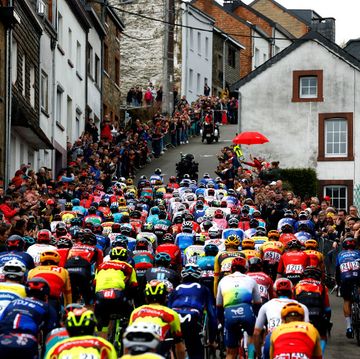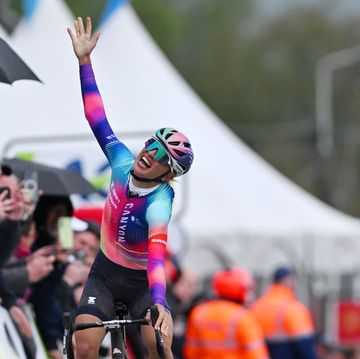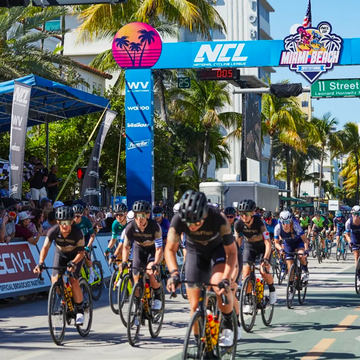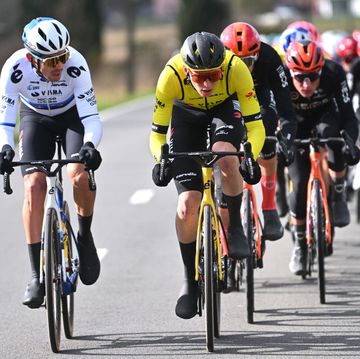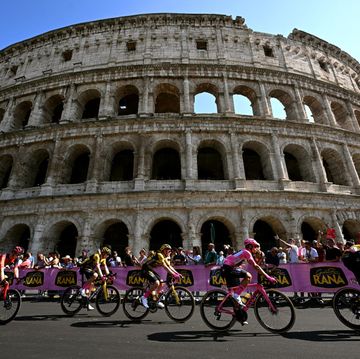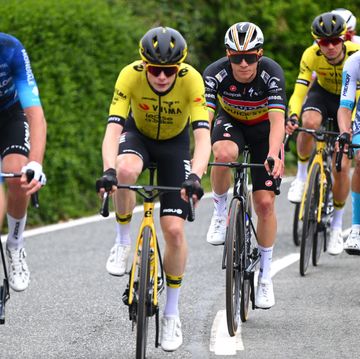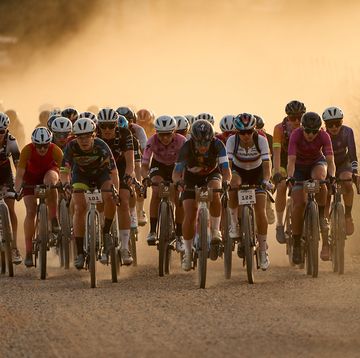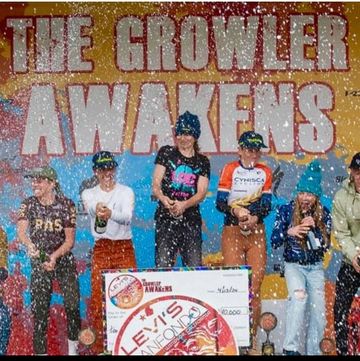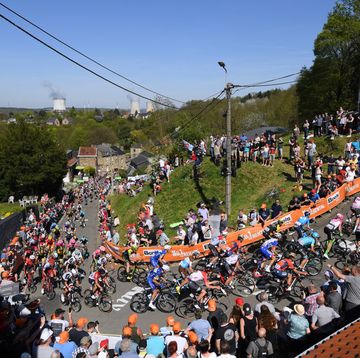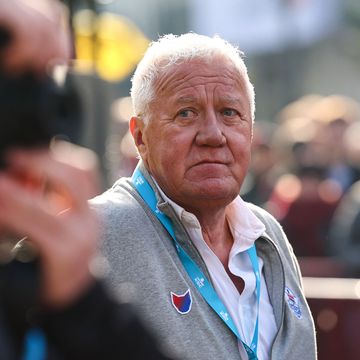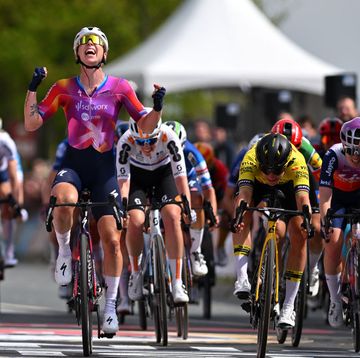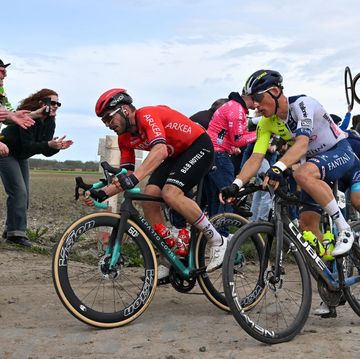Bike racing’s offseason is typically slow on news, but Team Sky made headlines last week with the announcement that its star rider, Chris Froome, will race both the 2018 Giro d’Italia and the Tour de France.
The announcement set off a wave of speculation. Will it spoil the Tour? How likely is it that Froome will win one or both races? Is he displaying signs of hubris and/or greed? (Giro promoter RCS Sport is rumored to have guaranteed Froome a €2 million start fee.)
It's all worthy fodder for discussion, but ignores an entirely separate set of factors: The plan is easily the boldest thing Sky and Froome have ever attempted, it’s highly unlikely to succeed, and it will—provided Froome does take the start in both races—make for an unforgettable season.
Froome has outlined a near-unprecedented series of goals. He’s aiming to become the first rider in 19 years to achieve a Giro-Tour double (Marco Pantani, 1998); win the Giro and become the first rider in 35 years to win three successive Grand Tours (Bernard Hinault, 1982-83); win the Tour and become the first rider in 45 years to win four successive Grand Tours (Eddy Merckx, 1972-73); join the five-time Tour de France winners club, which has just four other members; and become only the seventh rider ever to win all three Grand Tours.
All this, in one year.
RELATED: Chris Froome Wins 2017 Tour de France
Yes, other racers have done what Froome is striving for. But only two—Merckx in 1974 and Jacques Anquetil in 1963—achieved similar feats in a single season. Plus, Froome will turn 33 in May. This may be his last, best shot to win his first Giro and a fifth Tour.
That puts a mountain of pressure on Froome and Team Sky. To start, Froome has not raced the Giro since 2010, the season before his sudden and stunning emergence as the sport’s top stage racer. In fact, Froome hasn’t raced in Italy, period, since 2013’s Tirreno-Adriatico.
Racing the Giro is different than racing the Tour. You can say the same about the Vuelta a España, but Froome had plenty of experience in that contest before finally getting an elusive win this year. Of the three stage races, the Giro is often the least predictable and most wide-open. With one exception, Team Sky has struggled with it.
Sky’s approach to Grand Tours has always been clear: strangle the race with dominant strength, particularly on climbs. That may be hard to pull off in 2018. This offseason, Sky lost two crucial climbers to other teams: Mikel Nieve went to Orica-Scott, while Mikel Landa—who might have been the strongest rider at the 2017 Tour—decamped for Movistar. Their replacements, all-arounder Jonathan Castroviejo from Movistar and climber David de la Cruz from Quick Step, are solid, but not quite proved on the same level.
RELATED: 7 Riders Who Can Beat Chris Froome in 2018
The Giro and Tour teams will likely differ somewhat in makeup. The Tour has particular challenges: The early team time trial suggests that Sky needs a rider like Castroviejo, while the controversial Roubaix stage calls for new acquisition Dylan Van Baarle to help keep Froome upright on the cobbles. Competing teams will get eight start spots in 2018, down from nine this year.
For its two big Grand Tours, Sky has to find 8-10 climber starts from a mix of de la Cruz, Michal Kwiatkowski, Sergio Henao, Geraint Thomas, Wout Poels, David Lopez, and Diego Rosa, or hope that young riders like Gianni Moscon can step up. The math isn’t impossible, but it’s not great, and the strain on the team will be as big as on Froome himself.
In both races, Froome will face talented fields. The conventional wisdom is that his top competitors will avoid the Giro and instead wait to strike at him in the Tour, when he's still recovering from the previous contest. But that may not be the case.
Roster lineups are just rumors right now, but the Italian daily Gazzetta dello Sport is forecasting a solid list of competitors in the Giro, including two-time podium finisher Fabio Aru, FDJ’s Thibaut Pinot, Astana’s young prodigy Miguel Angel Lopez, and a formidable Movistar duo of Mikel Landa and Alejandro Valverde. Defending champion Tom Dumoulin, whom Gazzetta also thinks will start, played it coy when asked, saying he already knew his plans but would wait to announce them in January.
For the Tour, Froome will likely face Dumoulin, 2017 podium finishers Rigoberto Uran and Romain Bardet, Vincenzo Nibali, both Nairo Quintana and Landa of Movistar, and Richie Porte. Of them, only Landa and Dumoulin are thought to be targeting both races.
RELATED: Could Chris Froome Win Six Tours de France?
Finally, the 2018 Giro itself will be an interesting affair. As usual, it’s heavy on climbing and mountaintop finishes, weighted to the final week. It has seven true summit finales, plus several tricky uphill finishes into tight, old city centers. Proper positioning is essential on these frenetic dashes. Froome has proven more than adept at that in the Tour, but the Giro's narrower roads add an unpredictable element.
Beyond the particulars of the route, an ongoing political controversy hangs over this year's Giro. In the first-ever Grand Tour start outside Europe, the Giro will begin with three stages in Israel—which has attracted protest from pro-Palestinian groups. In a sign of how tense things could become, race organizers got crosswise last week with the Israeli government over whether Stage 1 is located in "Jerusalem" or "West Jerusalem." That’s the charged atmosphere Froome and other racers will step into on May 4.
Almost all of Froome’s plans for making history in France hinge first on winning in Italy. Illness, a crash, or any number of mishaps could derail his plans. But whether successful or not, what we know is this: It’s the single biggest challenge any racer has taken on in decades. And if any team is up to it, it’s Sky.
